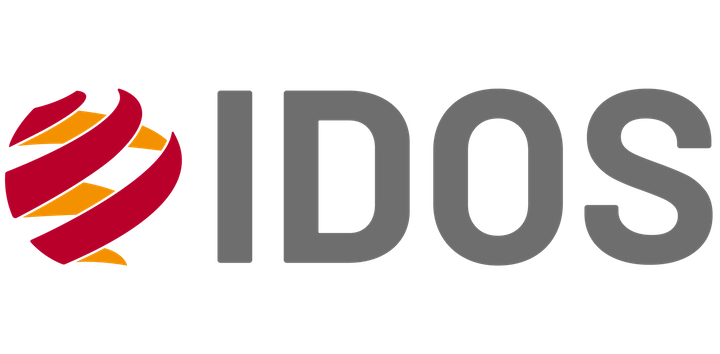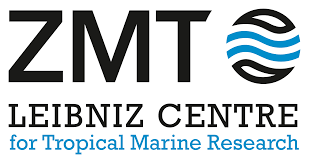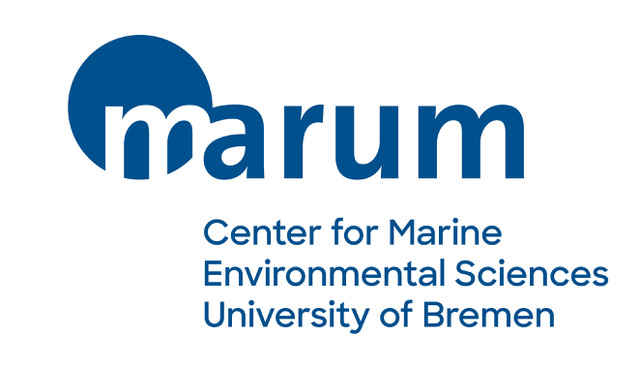EXECUTIVE MARITIME MANAGEMENT POSTGRADUATE DIPLOMA (PGDIP)
Managers in today’s extremely competitive maritime industry need to cope with continuous technical, regulatory and commercial development. They must be able to anticipate future opportunities and act proactively, armed with up-to-date skills and comprehensive knowledge if they want to retain their competitive edge. This programme, first offered in 2015, has been designed to provide a “boot camp” for managers. It is continuously updated to address issues of critical importance in the maritime industry across its operational, technical and commercial aspects.
The programme is delivered in association with DNV GL, the world’s largest ship and offshore classification society. DNV GL’s Maritime Academy provides an extensive portfolio of training courses for the maritime industry. With their global network they are able to exploit best practices and offer comprehensive training programmes.
PROGRAMME DETAILS
The programme carries 40 European Credits, and can be completed in 11 months, with the Graduation Ceremony at WMU in Malmö held in November 2021. It is comprised of five modules.
MODULE 1: Fundamental Maritime Economics and Contemporary Maritime
(20 Sept 2021 - 14 Nov 2021)
This module examines the fundamental issues and current challenges associated with the economic, legal and regulatory environment in the shipping sector. You will discuss the principles and trends in maritime markets and gain an understanding of maritime corporate and economic driving forces.
This module will address the legal framework of maritime transport. You will have presentations on maritime conventions and the new regulatory development in the shipping sector. The module will also introduce the private maritime law including, basic legal thinking and methodology, the legal notion of ship registration, fundamental principles in the carriage of goods by sea, the structure of a ship sale & purchase transaction, the exercise of ship security rights, principles of marine insurance and other main legal aspects of shipping.
Learning outcomes
By the end of the module, you should be able to:
- Explain the fundamental relations between economy, trade and maritime transport
- Analyze the challenges and trends in maritime markets
- Give economic explanations to some major challenges in shipping
- Demonstrate a satisfactory knowledge of the fundamental elements of legal thinking and methodology
- Understand the doctrine of judicial precedent
- Identify and discuss the basic principles of maritime law within the wider context of the law and legal systems;
- Realize the significance of ship registration for the exercise of shipping activity and appreciate the existence of fraudulent registration and related practices
- Identify the various types of sea carriage contracts, whether evidenced in charter parties or bills of lading
- Understand the functions of a Bill of lading and the Carrier’s liability for cargo in maritime transport. Understand the mechanism of limitation of liability and how it relates to the special regimes of liability limitation (e.g. HVR)
- Understand the basic structure of a ship sale and the rights stemming from it in favour of the seller and buyer. This includes a fundamental understanding of the sale and purchase transactions.
- Realize the significance of security rights on a ship. Understand the function and exercise of a maritime lien in contrast to the exercise of mortgage rights. Identify the legal consequences of the exercise of security rights in a judicial sale
- Describe the concepts of risk and loss, insurability of risk and scope of cover in the common types of insurance in maritime transport
- Identify the basic legal duties in ship management
Course outline
- Economic globalization and shipping
- Shipping market
- Maritime cost
- Ports and their impact on shipping
- Maritime freight market
- Economics of marine environment protection
- Introduction to Legal Thinking &Methodology I + II
- Basic Principles of Law I + II
- Ship Registration I + II
- Introduction to Sea Carriage
- Carriage of Goods by Sea I + II + III + IV
- Ship Sale & Purchase
- Ship Security Rights I + II
- Principles of Marine Insurance
- Ship Management - Legal Perspective
MODULE 2: Shipping Market and Financial Management
(29 Nov 2021 - 23 Jan 2022)
This module presents an overview of the shipping markets and their unique characteristics, examines the challenges and issues in the current maritime sector, in terms of the financial management and investment appraisal, the availability of bank finance and bank credit analysis, as well as the alternative sources of ship finance, including Asian financing, Export Credit Agencies, private and public equity, high-yield bond markets, leasing and mezzanine ship finance. Advanced knowledge of shipping financial management and the impact of economic variables on shipping business organizations’ financial operations are analyzed. Finally, the module concludes by providing various business and financial risks associated with any shipping company and developing several risk management solutions to achieve economic sustainability. You will receive in-depth training through several hands-on exercises and case studies to enable you to develop, appraise, negotiate, and select alternative shipping projects.
Learning outcomes
By the end of the module, you should be able to:
- Understand the fundamentals of the shipping markets
- Have an overview of the various maritime database for real-time market information
- Appraise the ship finance sector in terms of markets, participants, sources of ship finance, current trends and future challenges
- Implement financial analysis for investment in the shipping industry
- Analyze the cost of capital and the capital structure of maritime organizations
- Develop a deep understanding of shipping bank processes when extending a shipping loan facility
- Evaluate alternative sources of capital for shipping projects
- Evaluate the appropriateness of private and public equity and high-yield bonds
- Identify business and financial risks for a shipping company
- Develop financial risk management solutions to improve the company’s performance
Course outline
- Shipping markets and data: cyclicality, timing and forecasting
- Capital budgeting and investment appraisal
- Cost of capital and capital structure in shipping
- Financial analysis of a shipping project
- Bank shipping loans and bank syndication
- Bank credit policy and analysis
- Bank loan monitoring, legal considerations and workouts
- Issuance of a shipping bank loan
- Alternative sources of ship financing (public and private equity and debt, leasing, etc.)
- Derivative and Risk Management
MODULE 3: Management, Organizational Behaviour and Leadership
(31 Jan 2022 - 27 Mar 2022)
The maritime industry at all levels is, on the one hand, operated and managed by people within the context of organizations. On the other hand, it also affects people, either adversely or beneficially, whether they are internal or external to maritime organizations (public or private). In this module you will gain a fundamental understanding of the nature of organizations and the processes inherent in them as they relate to individuals and groups.The module will also increase learners’ appreciation of the significance of management and leadership in organizations when organizational effectiveness, sustainability and productivity are in view. Trends and issues related to maritime labour within the broad context of human resource management are addressed. Additionally, a discussion of the importance of ethics and corporate social responsibility in contemporary maritime affairs is carried out. The module is intended to give you a well-grounded appreciation of the need to manage people optimally and the understanding and evaluative skills to do so.
Learning outcomes
By the end of the module, you should be able to:
- Evaluate the merits/demerits of different theoretical approaches to management and leadership
- Explain the functions of management and their diversity of expression in different kinds of organizations
- Evaluate processes for the optimization of individual behaviour and teamwork in an organizational setting
- Identify and apply various models of change management and change leadership to organizations in transition
- Explain why organizations need to learn and how this can be optimally done
- Discuss the application of the concept of corporate social responsibility in the maritime industry
- Explain diverse principles of human resource management and apply them to labour challenges in the maritime industry
Course outline
- Principles of Management
- The evolution of management theory
- Functions of management
- Organizational Behaviours and HRM
- HR Management Principles, policies, procedures and systems
- Ethics and corporate social responsibility
- Leadership concepts and Applications
MODULE 4: Safe Shipping – Safety and Technology
(4 Apr 2022 -29 May 2022)
Maritime Technology(Safer & Smarter)
This module explores two fundamental aspects of the modern maritime domain: safety in shipping and the digital transformation. You will learn about various safety and security challenges, how to identify them and how to manage risk. From port state control to piracy and cyber-security, you can expect to be well versed in key issues faced by maritime regulators and maritime industry around the world. The second half of the module looks at assorted aspects of the digital transformation of the maritime world, to understand capabilities and limitations, opportunities and threats of key technologies, from A.I. to autonomous shipping, from Digital Twins to Virtual Reality. This module will hone your personal and corporate skills, and significantly improve your maritime industry credentials.
Learning outcomes
By the end of the module, you should be able to:
- Identify key safety and security issues relevant to the maritime domain
- Understand the role of IMO conventions, codes and instruments in mitigating the risk of safety and security challenges
- Appreciate the core concepts of accident investigations
- Realise importance and concepts of cyber security at sea and on shore
- Understand capabilities and limits of A.I. technologies for maritime applications
- Understand capabilities and limits of Digital Twin technology
- Understand capabilities and limits of Virtual/Augmented Reality
- Understand capabilities and limits of autonomous ship technology
Course outline
- Sea, shipping, ships and safety
- OHS Introduction to MLC, ISM and ISPS
- Risk Assessment in ISM Context
- Risk Management and Risk Assessment Methods
- ISPS Code as an Instrument for Managing and Controlling Risk
- Risk Management in the IMO
- Maritime Cyber Security
- Accident investigation in the maritime industry
- Artificial Intelligence
- Digital Twins
- Cyberships
- Digital Twins
- Virtual Reality
MODULE 5: Sustainable Shipping – Environment and Technology
(6 Jun 2022 -31 July 2022)
Maritime EnvironmentalTechnology, Sustainability and Challenges
Although seaborne transportation is the most environmentally friendly mode of transportation, environmental impacts brought about by shipping activities, e.g. air emissions from international shipping or waste created in the shipping processes, have been under increased scrutiny. The environmental pressure coupled with volatile and high fuel prices has changed the market and become the trigger for innovative technologies and solutions. This module focuses on environmental aspects of the shipping industry – from carbon footprint to ballast water management, from antifouling to oil spills, along with relevant technologies and challenges faced in the aim of achieving sustainable maritime development. It examines environmental issues, associated present and anticipated legislation, and the available and expected options to address the issues with their associated pros and cons as well as management aspects of implementation and monitoring.
Learning outcomes
By the end of the module, you should be able to:
- Explain environmental and economic pressures, air emissions (pollutants and GHGs), externalities and international responses
- Describe energy management in the maritime industry and MARPOLAnnex VI (Chapter IV), and energy efficiency options during ship design and operation
- Discuss alternative fuels and marine renewable energy
- Discuss life-cycle considerations of retrofitting and decision making under trade-off situations
Course outline
- Environmental awareness & market context
- Emissions to air
- Energy efficiency standards & regulations
- Retrofitting, LCA & Decision Making
- Energy efficiency options in design and operation
- Performance monitoring
- Fuels
- Renewable energy assistance
- Biosecurity & Ballast Water Management
- Biofouling & Antifouling
- Waste Management& Ship Recycling
- Tanker safety
- Acoustic pollution
Executive Maritime Management Postgraduate Diploma (PGDIP) - ONLINE
Executive Maritime Management Postgraduate Diploma (PGDIP) - ONLINE
Programme Details
Programme Details
Managers in today’s extremely competitive maritime industry need to cope with continuous technical, regulatory and commercial development. They must be able to anticipate future opportunities and act proactively, armed with up-to-date skills and comprehensive knowledge if they want to retain their competitive edge. This online programme, first offered in 2015, has been designed to provide a “boot camp” for managers. It is continuously updated to address issues of critical importance in the maritime industry across its operational, technical and commercial aspects.
The programme is delivered online in association with DNV, the world’s largest ship and offshore classification society. DNV's Maritime Academy provides an extensive portfolio of training courses for the maritime industry. With their global network they are able to exploit best practices and offer comprehensive training programmes.
Programme Details
The programme carries 40 European Credits, and can be completed online in 11 months. Upon successful completion of the programme, students are welcome to participate in the WMU Graduation Ceremony held in Malmö (generally at the end of October or early November). The programme is comprised of five modules.
MODULE 1: Fundamental Maritime Economics and Contemporary Maritime Law
(14 Sept 2026 - 15 Nov 2026)
This module examines the fundamental issues and current challenges associated with the economic, legal and regulatory environment in the shipping sector. You will discuss the principles and trends in maritime markets and gain an understanding of maritime corporate and economic driving forces.
This module will address the legal framework of maritime transport. You will have presentations on maritime conventions and the new regulatory development in the shipping sector. The module will also introduce the private maritime law including, basic legal thinking and methodology, the legal notion of ship registration, fundamental principles in the carriage of goods by sea, the structure of a ship sale & purchase transaction, the exercise of ship security rights, principles of marine insurance and other main legal aspects of shipping.
Learning outcomes
By the end of the module, you should be able to:
- Explain the fundamental relations between economy, trade and maritime transport
- Analyze the challenges and trends in maritime markets
- Give economic explanations to some major challenges in shipping
- Demonstrate a satisfactory knowledge of the fundamental elements of legal thinking and methodology
- Understand the doctrine of judicial precedent
- Identify and discuss the basic principles of maritime law within the wider context of the law and legal systems;
- Realize the significance of ship registration for the exercise of shipping activity and appreciate the existence of fraudulent registration and related practices
- Identify the various types of sea carriage contracts, whether evidenced in charter parties or bills of lading
- Understand the functions of a Bill of lading and the Carrier’s liability for cargo in maritime transport. Understand the mechanism of limitation of liability and how it relates to the special regimes of liability limitation (e.g. HVR)
- Understand the basic structure of a ship sale and the rights stemming from it in favour of the seller and buyer. This includes a fundamental understanding of the sale and purchase transactions.
- Realize the significance of security rights on a ship. Understand the function and exercise of a maritime lien in contrast to the exercise of mortgage rights. Identify the legal consequences of the exercise of security rights in a judicial sale
- Describe the concepts of risk and loss, insurability of risk and scope of cover in the common types of insurance in maritime transport
- Identify the basic legal duties in ship management
Course outline
- Economic globalization and shipping
- Shipping market
- Maritime cost
- Ports and their impact on shipping
- Maritime freight market
- Economics of marine environment protection
- Introduction to Legal Thinking &Methodology I + II
- Basic Principles of Law I + II
- Ship Registration I + II
- Introduction to Sea Carriage
- Carriage of Goods by Sea I + II + III + IV
- Ship Sale & Purchase
- Ship Security Rights I + II
- Principles of Marine Insurance
- Ship Management - Legal Perspective
MODULE 2: Shipping Market and Financial Management
(23 Nov 2026 - 18 Jan 2027)
This module presents an overview of the shipping markets and their unique characteristics, examines the challenges and issues in the current maritime sector, in terms of the financial management and investment appraisal, the availability of bank finance and bank credit analysis, as well as the alternative sources of ship finance, including Asian financing, Export Credit Agencies, private and public equity, high-yield bond markets, leasing and mezzanine ship finance. Advanced knowledge of shipping financial management and the impact of economic variables on shipping business organizations’ financial operations are analyzed. Finally, the module concludes by providing various business and financial risks associated with any shipping company and developing several risk management solutions to achieve economic sustainability. You will receive in-depth training through several hands-on exercises and case studies to enable you to develop, appraise, negotiate, and select alternative shipping projects.
Learning outcomes
By the end of the module, you should be able to:
- Understand the fundamentals of the shipping markets
- Have an overview of the various maritime database for real-time market information
- Appraise the ship finance sector in terms of markets, participants, sources of ship finance, current trends and future challenges
- Implement financial analysis for investment in the shipping industry
- Analyze the cost of capital and the capital structure of maritime organizations
- Develop a deep understanding of shipping bank processes when extending a shipping loan facility
- Evaluate alternative sources of capital for shipping projects
- Evaluate the appropriateness of private and public equity and high-yield bonds
- Identify business and financial risks for a shipping company
- Develop financial risk management solutions to improve the company’s performance
Course outline
- Shipping markets and data: cyclicality, timing and forecasting
- Capital budgeting and investment appraisal
- Cost of capital and capital structure in shipping
- Financial analysis of a shipping project
- Bank shipping loans and bank syndication
- Bank credit policy and analysis
- Bank loan monitoring, legal considerations and workouts
- Issuance of a shipping bank loan
- Alternative sources of ship financing (public and private equity and debt, leasing, etc.)
- Derivative and Risk Management
MODULE 3: Management, Organizational Behaviour and Leadership
(25 Jan 2027 - 21 Mar 2027)
The maritime industry at all levels is, on the one hand, operated and managed by people within the context of organizations. On the other hand, it also affects people, either adversely or beneficially, whether they are internal or external to maritime organizations (public or private). In this module you will gain a fundamental understanding of the nature of organizations and the processes inherent in them as they relate to individuals and groups.The module will also increase learners’ appreciation of the significance of management and leadership in organizations when organizational effectiveness, sustainability and productivity are in view. Trends and issues related to maritime labour within the broad context of human resource management are addressed. Additionally, a discussion of the importance of ethics and corporate social responsibility in contemporary maritime affairs is carried out. The module is intended to give you a well-grounded appreciation of the need to manage people optimally and the understanding and evaluative skills to do so.
Learning outcomes
By the end of the module, you should be able to:
- Evaluate the merits/demerits of different theoretical approaches to management and leadership
- Explain the functions of management and their diversity of expression in different kinds of organizations
- Evaluate processes for the optimization of individual behaviour and teamwork in an organizational setting
- Identify and apply various models of change management and change leadership to organizations in transition
- Explain why organizations need to learn and how this can be optimally done
- Discuss the application of the concept of corporate social responsibility in the maritime industry
- Explain diverse principles of human resource management and apply them to labour challenges in the maritime industry
Course outline
- Principles of Management
- The evolution of management theory
- Functions of management
- Organizational Behaviours and HRM
- HR Management Principles, policies, procedures and systems
- Ethics and corporate social responsibility
- Leadership concepts and Applications
MODULE 4: Safe Shipping – Safety and Technology
(29 Mar 2027 - 23 May 2027)
Maritime Technology(Safer & Smarter)
This module explores two fundamental aspects of the modern maritime domain: safety in shipping and the digital transformation. You will learn about various safety and security challenges, how to identify them and how to manage risk. From port state control to piracy and cyber-security, you can expect to be well versed in key issues faced by maritime regulators and maritime industry around the world. The second half of the module looks at assorted aspects of the digital transformation of the maritime world, to understand capabilities and limitations, opportunities and threats of key technologies, from A.I. to autonomous shipping, from Digital Twins to Virtual Reality. This module will hone your personal and corporate skills, and significantly improve your maritime industry credentials.
Learning outcomes
By the end of the module, you should be able to:
- Identify key safety and security issues relevant to the maritime domain
- Understand the role of IMO conventions, codes and instruments in mitigating the risk of safety and security challenges
- Appreciate the core concepts of accident investigations
- Realise importance and concepts of cyber security at sea and on shore
- Understand capabilities and limits of A.I. technologies for maritime applications
- Understand capabilities and limits of Digital Twin technology
- Understand capabilities and limits of Virtual/Augmented Reality
- Understand capabilities and limits of autonomous ship technology
Course outline
- Sea, shipping, ships and safety
- OHS Introduction to MLC, ISM and ISPS
- Risk Assessment in ISM Context
- Risk Management and Risk Assessment Methods
- ISPS Code as an Instrument for Managing and Controlling Risk
- Risk Management in the IMO
- Maritime Cyber Security
- Accident investigation in the maritime industry
- Artificial Intelligence
- Digital Twins
- Cyberships
- Digital Twins
- Virtual Reality
MODULE 5: Sustainable Shipping – Environment and Technology
(31 May 2027 - 26 July 2026)
Maritime Environmental Technology, Sustainability and Challenges
Although seaborne transportation is the most environmentally friendly mode of transportation, environmental impacts brought about by shipping activities, e.g. air emissions from international shipping or waste created in the shipping processes, have been under increased scrutiny. The environmental pressure coupled with volatile and high fuel prices has changed the market and become the trigger for innovative technologies and solutions. This module focuses on environmental aspects of the shipping industry – from carbon footprint to ballast water management, from antifouling to oil spills, along with relevant technologies and challenges faced in the aim of achieving sustainable maritime development. It examines environmental issues, associated present and anticipated legislation, and the available and expected options to address the issues with their associated pros and cons as well as management aspects of implementation and monitoring.
Learning outcomes
By the end of the module, you should be able to:
- Explain environmental and economic pressures, air emissions (pollutants and GHGs), externalities and international responses
- Describe energy management in the maritime industry and MARPOLAnnex VI (Chapter IV), and energy efficiency options during ship design and operation
- Discuss alternative fuels and marine renewable energy
- Discuss life-cycle considerations of retrofitting and decision making under trade-off situations
Course outline
- Environmental awareness & market context
- Emissions to air
- Energy efficiency standards & regulations
- Retrofitting, LCA & Decision Making
- Energy efficiency options in design and operation
- Performance monitoring
- Fuels
- Renewable energy assistance
- Biosecurity & Ballast Water Management
- Biofouling & Antifouling
- Waste Management& Ship Recycling
- Tanker safety
- Acoustic pollution
Entrance Requirements
Entrance Requirements
The Admissions Board will consider only those applicants who meet the following general entrance requirements:
- A minimum of five years' work experience
- A Bachelor’s degree in a relevant discipline (with full transcript)
and/or
The highest grade certificate of competency for unrestricted service as master mariner or chief engineer - English language ability (both written and spoken, see below English Requirement)
ENGLISH LANGUAGE REQUIREMENTS
All applicants must submit an internationally recognized English language proficiency test. Acceptable tests include IELTS, TOEFL, Cambridge examinations, and GCE O-levels in English language. Other tests are accepted by the Admissions Board only under exceptional circumstances; applicants should check with the Registry in such cases.
Candidates are assessed in accordance with the following general guidelines:
Test of English as a Foreign Language (TOEFL)
IBT: 80+
PBT: 550+
WMU’s TOEFL institution code is 9198.
International English Language Testing System (IELTS)
band 6.0 or above
Please note: the academic, not the general training, version of the test is required
Cambridge Examinations
Advanced (CAE) or Proficiency (CPE)
Students who have a pass in a GCE O-level or the equivalent (WAEC, CXC etc) must enclose a copy of their examination results for evaluation by the Admissions Board.
Sometimes applicants’ test results meet the University’s general guidelines, but show weaknesses in a certain skills area. In such cases, the Admissions Board will evaluate the skill level based on guidelines shown above. Information on TOEFL may be obtained through US embassies/consulates or the US Information Service, and on the IELTS and Cambridge Examinations from the British Council or Australian or UK embassies/consulates.
More information can be found by visiting these websites:
https://www.ets.org/toefl
https://www.ielts.org
https://www.cambridgeenglish.org
Fees & Costs
Fees & Costs
Time frame: 11 months
Credits: 40 EC
Either you pay in two instalments, with one invoice at the start of the programme and the second invoice before the third module, for a total fee of EUR 8,170 (EUR1,634 per module). Or you may choose to pay on a per module basis and will receive five invoices, for a total fee of EUR 9,330 (EUR 1,866 per module).
WMU alumni and DNV employees are eligible for a 20% discount on this programme. For more than two participants from the same company, a 10% discount per participant is offered.
January 2022
Maritime Energy Management
Maritime Law & Policy
Maritime Safety & Environmental AdministrationOcean Sustainability, Governance & Management
Port Management
Shipping Management & Logistics
For more information, contact:
Location 1 (Piraeus):
Dr Marina Papaioannou
marina.papaioannou@dnv.com
Phone: +30 210 4100 200
Location 2 (Singapore):
Janette Seetoh
mei-lin-janette.seetoh@dnv.com
Phone: +65 9152 2474


































